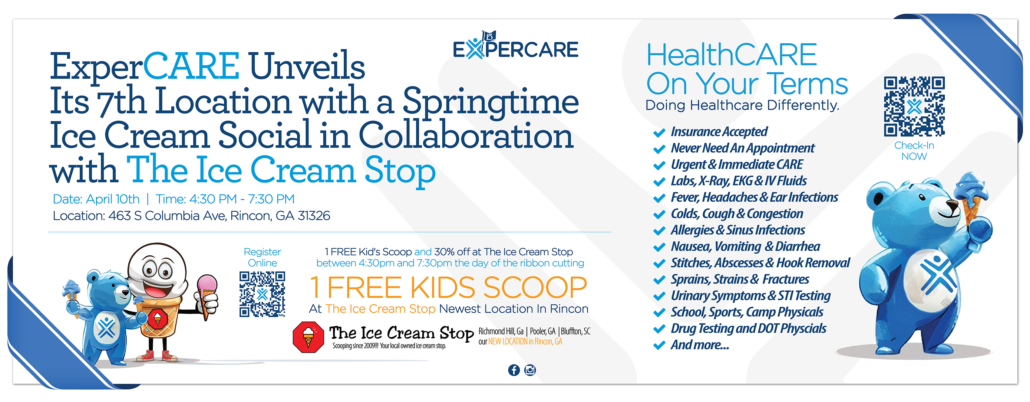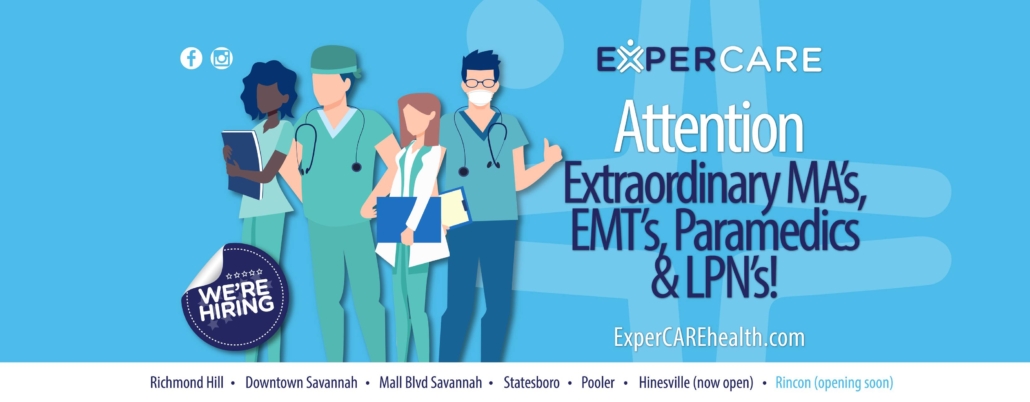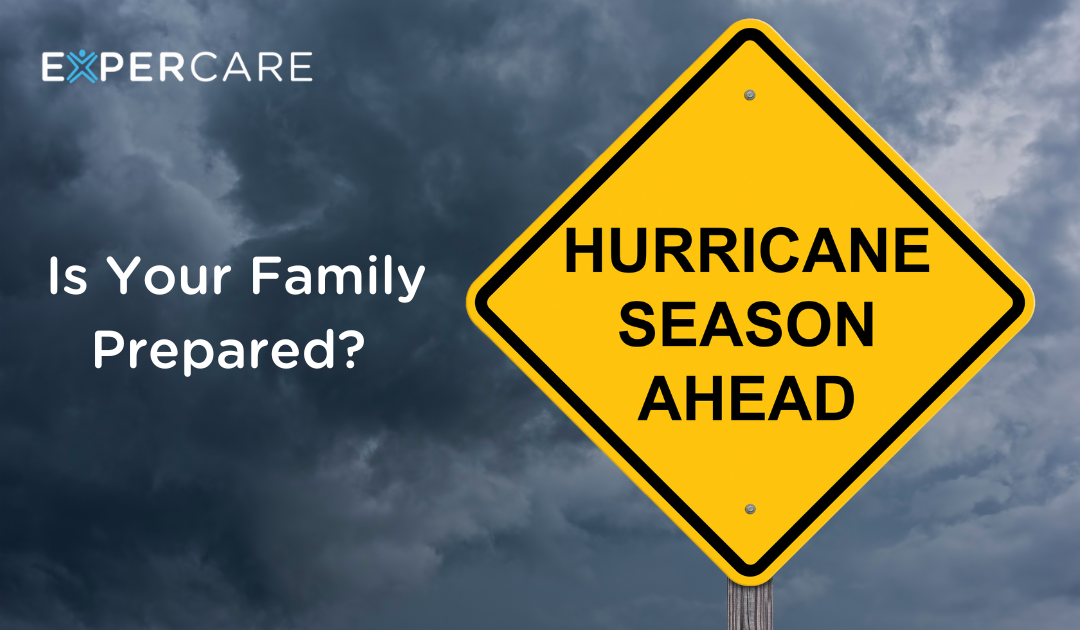
ExperCARE Unveils Its 7th Location with a Springtime Ice Cream Social in Collaboration with The Ice Cream Stop
[Rincon, GA] –ExperCARE, a leader in accessible and quality healthcare, is thrilled to announce the grand opening of its seventh location. In celebration of this milestone and the onset of spring, ExperCARE is partnering with The Ice Cream Stop to host a classic ice cream social. The community is warmly invited to join the festivities on April 10th, from 4:30 PM to 7:30 PM, at the new ExperCARE facility.
Event Details:
Date: April 10th
Time: 4:30 PM – 7:30 PM
Location: 463 S Columbia Ave, Rincon, GA 31326 – Rincon ExperCARE
This family-friendly event promises to be a delightful blend of health and happiness, marking the beginning of a new chapter for ExperCARE and its commitment to community health and wellness. Attendees will enjoy a variety of ice cream flavors, fun activities, and the chance to learn more about the services and benefits offered by ExperCARE’s newest location.
“We are excited to open our doors and hearts to the community with this new facility,” said Catherine Grant, CEO of ExperCARE. “Collaborating with The Ice Cream Stop for an ice cream social is the perfect way to celebrate spring and connect with our neighbors. We believe in not just treating patients but also in building healthy, happy communities.”
The event will also feature ribbon-cutting ceremonies at both ExperCARE and The Ice Cream Stop, symbolizing a sweet partnership and shared commitment to the community. Special guests, including local dignitaries and business leaders, will be in attendance to commemorate the occasion. ExperCARE invites everyone to come out, enjoy some delicious ice cream, and explore the comprehensive healthcare services and community-oriented approach that ExperCARE is known for.
Special Offer: Register Online or On the Day of the Event To make the day even sweeter, ExperCARE offers an exclusive promotion for attendees. Register online or on the day of the event at ExperCARE and receive 1 free kid’s scoop and 30% off at The Ice Cream Stop on the day of the ribbon cutting between 4:30 and 7:30. This special offer is our way of saying thank you for welcoming us into the community and celebrating this significant moment with us.
About ExperCARE ExperCARE, founded in 2009, is a trusted provider of urgent care services, offering a wide range of healthcare services to meet the needs of the communities we serve. With a focus on convenience, accessibility, and high-quality care, ExperCARE is redefining the healthcare experience for patients across Georgia.
For more information about the event and to register: Visit https://expercarehealth.com/locations/rincon/. Or contact ExperCARE marketing at marketing@ExperCAREhealth.com









